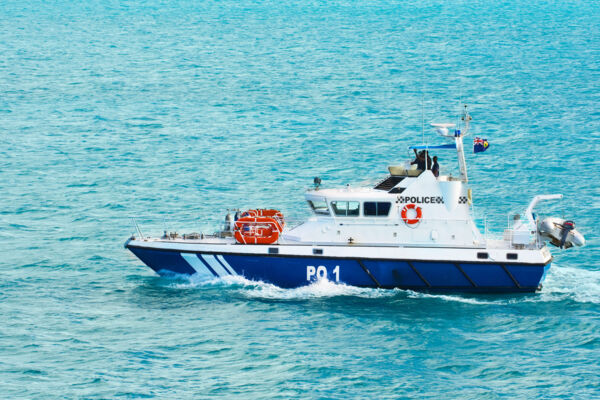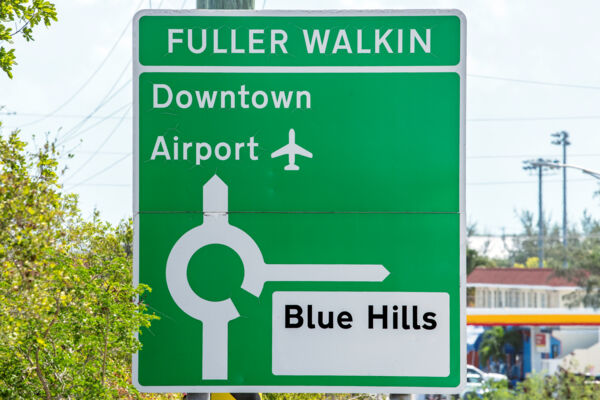How to Avoid Getting Into Trouble

While it’s relatively easy to stay safe in the Turks and Caicos Islands, it’s important to be aware of what decisions or behaviors could land you in trouble with law enforcement or risk your personal safety. Turks and Caicos laws can be severely strict, and enforcement is not always consistent. Penalties can be disproportionately severe compared to punishment for similar offenses in other countries.
Below is a list of what not to do while visiting the Turks and Caicos. Following this advice can significantly reduce your chances of getting into trouble with the law.
Don’t Bring Drugs Into Turks and Caicos
The Turks and Caicos has strict laws concerning drugs, and it is an offense to bring controlled substances into the country. This includes cannabis and cannabinol derivatives, such as THC gummies and CBD products. There are no exceptions of any kind for prescribed cannabis or medicines containing any cannabis components (such as THC or CBD).
If you are caught bringing drugs into the Turks and Caicos, you will face jail time or significant fines. Possession can result in a 10-year jail sentence and a fine of $75,000 or greater.
Don’t Attempt to Buy Drugs
It’s fairly common for drug dealers to approach tourists on the beach and ask whether they want to purchase drugs (including hard drugs).
Do not buy drugs or entertain these conversations. Drug dealers are criminals who are often affiliated with local gangs that commit serious crimes. Tourists have been shot attempting to buy drugs and have been killed in the crossfire of gang turf wars. Others have been arrested and charged with possession of controlled substances. Not attempting to buy drugs from a drug dealer significantly reduces your chance of being a victim of violent crime.
Some areas where drugs are sold on Providenciales are known gang territories where serious crime, including homicide, frequently occurs.
Drugs in Turks and Caicos may be laced with other things, and taking them can result in injury or death.
Don’t Bring Firearms or Ammunition

Turks and Caicos has extreme laws related to firearms. There are mandatory minimum sentences for firearm offenses (including ammunition) that are higher than for offenses such as homicide.
Bringing in firearms, ammo, firearm parts, or even imitation firearms like airsoft guns or toy guns is illegal and can result in a 12-year mandatory minimum prison sentence.
Common self-defense items like mace, pepper spray, tasers, and stun guns are also illegal.
Several tourists have been arrested for firearms-related offenses, typically relating to forgotten ammunition in checked baggage when leaving the country. These tourists faced the mandatory minimum of 12 years but were spared the full mandatory sentence after their charges attracted significant international media coverage and political intervention. Do not count on media or political help from your home country to get you out of trouble for bringing in firearms or ammo.
If you own a firearm, check and re-check your luggage for stray rounds. It's best to use separate suitcases or bags for domestic and international travel, and to not travel with any bags you have used to transport firearms or ammunition.
Don’t Use Unlicensed Companies
Not all tour companies in the Turks and Caicos are licensed, and booking with an unlicensed company can result in a negative experience at best or significant harm or fatal injury at worst.
Many of the unlicensed companies in Turks and Caicos are water sports operators providing jet ski rentals or boat wake rides. Unlicensed companies often do not follow the safety requirements and regulations that proper licensed businesses abide by. Tourists have reported staff of these businesses operating boats or jet skis while intoxicated, speeding through swim zones or protected areas where snorkelers are present, and extorting them for additional money after the tour.
It’s illegal to solicit business off the beach unless the vendor has an ID badge issued by the Department of Environment and Coastal Resources (DECR) providing them permission to do so. Always confirm that a company is properly licensed before booking any excursions.
Learn the Local Rules Before Driving

While the main roads in the Turks and Caicos are in decent condition, drivers in the country are remarkably poor. It’s common for vehicles (often illegal ‘jitney’ taxis, discussed below) to dangerously weave in and out of lanes, come to an abrupt stop in the middle of busy roads like Leeward Highway, refuse to yield at a roundabout, and speed around corners. Road fatalities in Turks and Caicos are disproportionately high for the country’s small population, and tourists have been killed by negligent drivers. Assume other drivers will make erratic or dangerous decisions.
Traffic in the Turks and Caicos drives on the left, and it’s not uncommon to see tourists driving on the wrong side of the road. Know the rules of the road before attempting to drive a vehicle.
One of the most common complaints from visiting drivers is the country’s use of roundabouts in place of traffic lights. If you are not familiar with proper roundabout usage, read Driving in the Turks and Caicos before renting a car.
Don’t Go to Shady Nightclubs
While the nightlife scene in the Turks and Caicos is quite small, fights are surprisingly common at local nightclubs (including floating bars). Some tourists have had their drinks spiked at local establishments, or have been caught in violent physical altercations (sometimes unprovoked) with other patrons.
Check online reviews before visiting a nightclub or floating bar so that you know what you’re getting into.
Don’t Use Jitneys
Jitneys are unregistered taxis (typically simply personal cars) that operate without the proper licenses and without insurance. Jitneys promise remarkably low fares for rides, and will do anything to pick up an additional passenger, even if it means climbing a pedestrian sidewalk or stopping in the middle of the highway.
Jitney drivers are not vetted, the vehicles are often mechanically unsafe, and there have been serious crimes—including assaults—committed by drivers.
Do not use jitneys. The only legal public transportation providers in the country are vehicles with front and back license plates that read ‘taxi’, ‘community cab’, 'omnibus', or ‘private transfer’. A license plate that says ‘Beautiful by Nature’ is a private car, and is a jitney if its driver is offering you a ride for a fee.
Don’t Walk Around at Night
While Grace Bay is generally safe, wandering around other areas at night can be risky, and increases your chance of being a crime victim.
Stick to well-lit and populated areas and avoid venturing out alone after dark.
Don’t Flash Wealth
Wearing flashy jewelry or making large amounts of cash visible can make you a target. Do not visit ATMs at night (except for those within grocery stores) and consider leaving expensive jewelry and personal effects at home.
